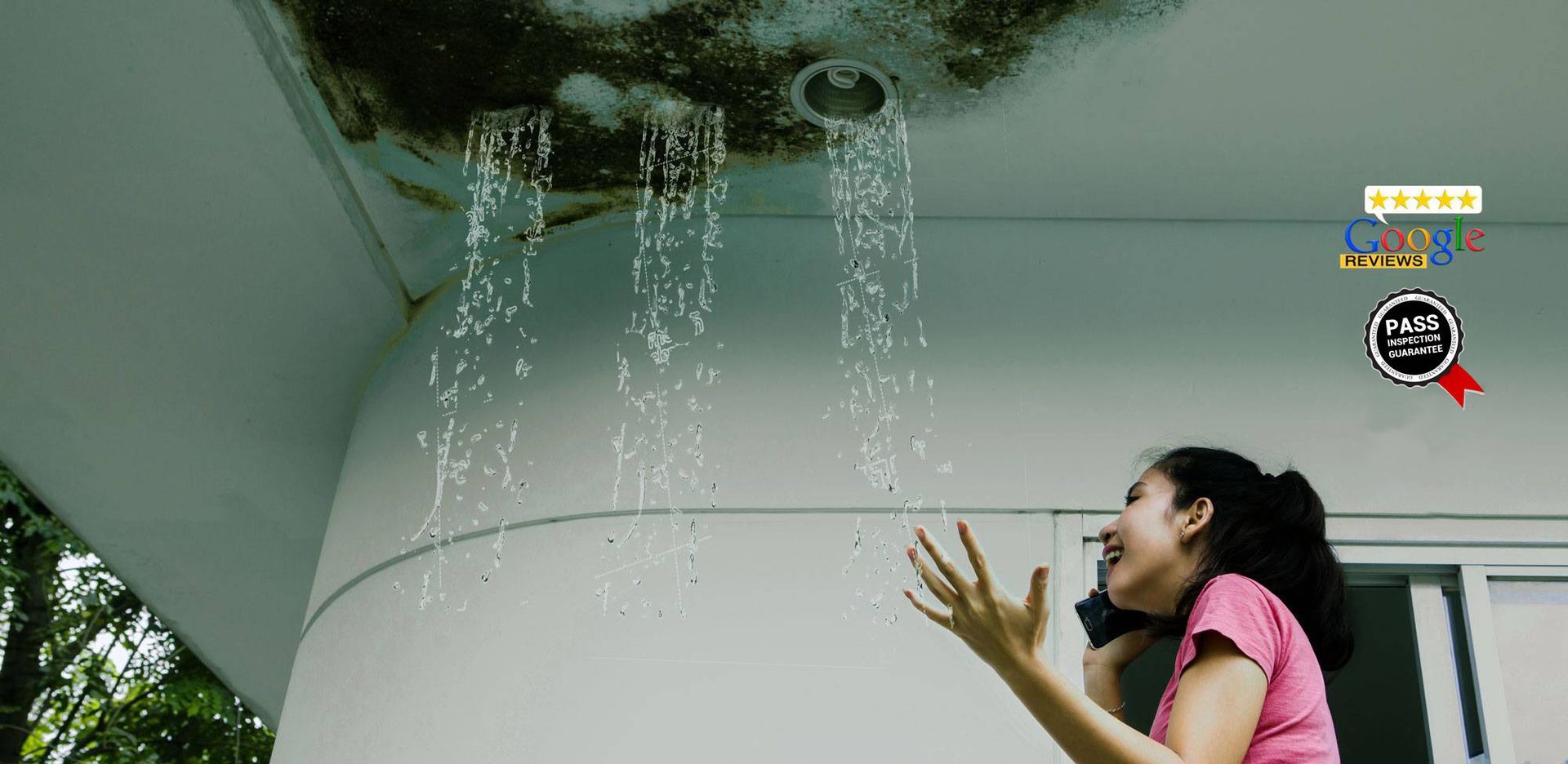Common Causes of Water Damage and How to Prevent Them
Water. It's essential for life, but when it goes where it shouldn't, it can become a homeowner's worst nightmare. From minor leaks to major floods, water damage can wreak havoc on your property, leading to costly repairs, structural issues, and even the dreaded growth of mold. As a trusted provider of water damage restoration services in Houston, TX,
Proven Restoration understands the stress and disruption that water damage can cause. That's why we've put together this comprehensive guide to help you understand the common causes of water damage and, more importantly, how to prevent them, safeguarding your home and your peace of mind.

The Silent Threat: Appliance Malfunctions and Leaks
One of the most frequent culprits behind residential water damage restoration calls we receive stems from everyday household appliances. Washing machines, dishwashers, refrigerators with ice makers, and water heaters are all connected to water lines and, over time, their hoses, connections, or internal components can deteriorate. A seemingly small leak can go unnoticed for days, slowly saturating surrounding materials like drywall, flooring, and even structural beams.
Prevention is key here:
- Regular Inspections: Make it a habit to inspect the hoses and connections of your appliances at least twice a year. Look for any signs of wear, cracks, bulges, or corrosion.
- Upgrade Hoses: Consider replacing standard rubber hoses with braided stainless steel hoses. These boast notably greater resilience and a reduced likelihood of rupturing.
- Check for Leaks Regularly: Keep an eye out for any dampness, puddles, or unusual sounds coming from your appliances. Address even minor leaks promptly.
- Proper Installation: Ensure that all appliances are installed correctly by qualified professionals. Incorrect installation can put unnecessary stress on water lines.
Plumbing Problems: Leaky Pipes and Fixtures
Your home's plumbing system is a complex network of pipes that constantly carry water throughout your property. Over time, factors like corrosion, changes in water pressure, freezing temperatures, or even shifting foundations can lead to leaks in pipes or around fixtures like faucets and toilets. These leaks, whether slow drips or sudden bursts, can cause significant water damage remediation issues if not addressed quickly.
Protect your home from plumbing-related water damage:
- Routine Maintenance: Schedule regular plumbing inspections by a licensed plumber. They possess the ability to spot issues before they worsen.
- Address Leaks Immediately: Don't ignore dripping faucets or running toilets. Even small leaks waste water and can lead to significant damage over time.
- Insulate Exposed Pipes: During colder periods, protect pipes in unheated zones such as basements and crawl spaces with insulation to avoid freezing and subsequent ruptures.
- Be Mindful of Drains: Avoid pouring grease, food scraps, or other debris down drains, as these can cause clogs and lead to overflows.
Mother Nature's Fury: Storms and Flooding
Houston is no stranger to heavy rainfall and the potential for flooding. Severe storms can overwhelm drainage systems, leading to flash floods that can inundate homes in a matter of minutes. Roof damage from wind or hail can also allow rainwater to seep into your attic and walls.
Minimize the impact of storms and flooding:
- Maintain Gutters and Downspouts: Regularly clean out leaves, debris, and other obstructions to ensure proper water flow away from your foundation.
- Check Your Roof Regularly: Check your roof for any broken or absent tiles, fissures, or other indications of deterioration. Address any issues promptly.
- Improve Drainage Around Your Home: Make sure the land around your home inclines outward from the foundation to channel water away. Think about putting in French drains in spots where water tends to gather.
- Know Your Flood Risk: Understand the flood risk in your area and consider purchasing flood insurance if necessary.
- Have an Emergency Plan: Develop a plan for what to do in case of a flood, including evacuation routes and how to protect valuable belongings.
The Gradual Infiltration: Humidity and Condensation
While not as dramatic as a burst pipe or a flood, excessive humidity and condensation can also lead to significant water damage over time. High humidity levels can cause moisture to condense on cool surfaces like windows, pipes, and walls, creating a breeding ground for mold and mildew. This can damage building materials and negatively impact indoor air quality.
Control humidity and condensation to prevent water damage:
- Use Dehumidifiers: In areas prone to high humidity, such as basements and bathrooms, use dehumidifiers to maintain a healthy moisture level.
- Improve Ventilation: Ensure adequate ventilation in your home, especially in kitchens and bathrooms, by using exhaust fans. When the weather is suitable, allow fresh air to circulate by opening your windows.
- Address Condensation Issues: If you notice persistent condensation on windows or walls, identify the source of the excess moisture and take steps to address it. This might involve improving insulation or repairing leaks.
Unexpected Accidents: Spills and Overflows
Sometimes, water damage can occur simply due to accidents inside the home. Overflows from bathtubs or sinks, spills that aren't cleaned up promptly, or even forgetting to turn off a hose outside can lead to localized water damage that, if left unaddressed, can spread and cause further problems.
Minimize water damage from accidents:
- Be Vigilant: Pay attention when using water fixtures and appliances.
- Clean Up Spills Immediately: Don't let spills sit for extended periods. The quicker you address them, the less chance they have to soak into surrounding materials.
- Supervise Children and Pets: Be mindful of how children and pets interact with water sources.
Water damage is a serious issue that can have long-lasting consequences for your home and your health. By understanding the common causes and taking proactive steps to prevent them, you can significantly reduce your risk. Nevertheless, despite taking all possible preventative steps, water damage can still happen.
Get Help from Houston’s Trusted Water Restoration Experts! Call Proven Restoration!
If you find yourself facing water damage in your Houston home, don't hesitate to contact the experts at
Proven Restoration. Our seasoned team is ready around the clock to deliver swift and efficient
water damage remediation and residential water damage restoration assistance. We utilize advanced techniques and equipment to quickly assess the damage, extract water, dry affected areas, and restore your property to its pre-loss condition. We also help
banish mold growth,
rent equipment so you can deal with mold and water damage yourself,
clean ducts, and
disinfect your property.
Don't let water damage disrupt your life. Call Proven Restoration today at
(713) 828-9229 for immediate assistance. We're here to help you recover and restore your peace of mind.
Frequently Asked Questions
How quickly should I address water damage?
It's crucial to address water damage as quickly as possible, ideally within 24-48 hours, to minimize the risk of mold growth and further structural damage. The longer water sits, the more extensive and costly the damage can become.
Can I handle water damage cleanup myself?
While you can take initial steps like mopping up small spills, significant water damage often requires specialized equipment and expertise to ensure proper drying and prevent mold growth. Professional water damage restoration services are recommended for larger incidents.
Will my homeowner's insurance cover water damage?
The coverage of water damage by your homeowner's insurance hinges on where the water originated. Generally, sudden and accidental water damage, like a burst pipe, is covered, but damage from neglect or flooding may require separate flood insurance.
What is the usual duration of the water damage restoration process?
The duration of the restoration process varies depending on the extent of 1 the damage, the materials affected, and the drying conditions. The timeframe can vary from a few days to several weeks.
What indicators suggest mold is growing following water damage?
Common signs of mold growth include a musty or earthy odor, visible black, green, or white spots, and persistent allergy-like symptoms. If you think mold is present, professional remediation is crucial.
Contact Information:
Proven Restoration LLC
1040B 1st St. E
Humble, TX 77338
United States
Tracy Ezzell






























